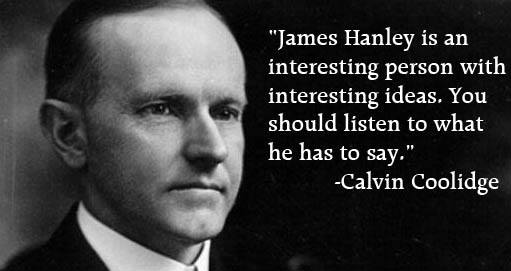 James Hanley explains that contrary to what you may have heard, Oklahoma is not banning secular marriage.
James Hanley explains that contrary to what you may have heard, Oklahoma is not banning secular marriage.
The following is adapted from the comment I left there…
MRS and I spent quite a bit of time on Friday trying to hash this out Over There. It was an exercise in futility.
The amount of misinformation on this has been staggering. So many people seemed insistent on believing it because Oklahoma and because Christians.
I’m not even in favor of the law, but I still spent most of my time defending it against the notion that it was going to bar non-Christians and non-Jews from getting married (and that Common Law marriages aren’t “second class” in the context of the law, and that calling them Common Law marriages was not intended to slight gays, and… jesucristo I want my Friday back.)
For most of the day, we were arguing with the belief that judges had still been eliminated, and even then I think the law was defensible.
I actually like the affidavit thing. I am not sure if we’d have gone that route (I would have, but Clancy was pretty lukewarm on it when I explained it to her), but that was a genuine improvement. Michael Cain actually argues that the verbiage of the Quaker provision is such that even an obvious non-religious organization, such as a University of Tulsa Linux Club, could theoretically give the right to marry.
Everything else just seemed geared towards protecting the sensibilities of clerks, which I am pretty indifferent to. I actually have a fair amount of sympathy for private actors who don’t want to take part in a gay wedding, including but not limited to photographers and cake-bakers and especially pastors. But clerks aren’t private actors, and equal treatment is in the job description.
I still like the Wyoming model, where just about anyone can get the right to marry. Or the French model, where religious marriage and civil marriage are treated independently.
Clancy and I were married by a judge. Which is technically a civil ceremony but he dropped God’s names and the one biblical thing I did not want in my wedding (Corinthians) was inescapably there in the service. (I would have liked to include Ecclesiastes, but that didn’t work out.)
When Clancy came home on Friday night and asked my day, I explained that I spent a lot of it contemplating marriage. She said that she should have been a part of that conversation.
And lastly, there is a specific provision (the above-mentioned Quaker provision) that singles out religions that do not have a formal pastor that conducts ceremonies. Among the religions mentioned is Bahai, which by itself demonstrates that the Judeo-Christian provision was not enforced, as Bahai is not a biblical religion.
Among the things I discovered while debating the subject was that there is actually a Bahai temple right here in the Tri-State Area, which I would not have guessed. And apparently Bahai is a pretty big deal in South Carolina, which I also wouldn’t have guessed (though I may have read that before).
About the Author
17 Responses to Getting The Government Out Of Marriage – Not Really
Leave a Reply
please enter your email address on this page.

Thanks for the pingback
“I explained that I spent a lot of it contemplating marriage. She said that she should have been a part of that conversation.”
Awesome.
Honestly I think liberals dislike the law out of mere reflexive distrust of anything proposed by a non-liberal. They’ve got the law all wrong and are frankly making fools of themselves, imo.
Credit where credit is due… ThinkProgress has it closer to right (albeit with the predictable partisan spin) than anybody I’ve seen.
Baha’i is an Abrahamic religion. At least, its as Abrahamic as Mormonism. It traces its important prophets to Abraham via Abraham’s third wife.
Yeah, but so is Islam, which is one of the ones mentioned as being targeted by this law.
I’ve not read that passage from Ecclesiastes before. Of course, by religious training is minimal.
I like it, although perhaps it is insufficiently romantic for a wedding. I’m curious about the last bit (4:12), which breaks the structure of two people together to talk about the strength of a cord of three strands. Is that a reference to children? Something else?
I always read it as marriage being a case of 1+1=3, but according to some the third is society, (extended) family, or something more than the couple itself.
It is an advocacy for polygamy…
I attended a friend’s Christian wedding and the sermon there said that the third strand is Christ. Their relationship is strong because they are joined to each other and to Christ.
Relevant. https://m.youtube.com/watch?v=hhkHG-oKCEU
This will always be my favorite Hayes Carll song. {lyrics}
Notably, Ecclesiastes is Old Testament and in Judaism as well. Which doesn’t preclude Jesus as the third, but provides for alternative explanations.
Well, I suppose Christians would substitute Christ for God because they think the two are identical but I suppose the message is roughly the same.
Isn’t it ironic…
that you chose the least verbose president for the quote?
I actually thought of all of those! I feel like quite the religious scholar, although I did not know this was old Testament.